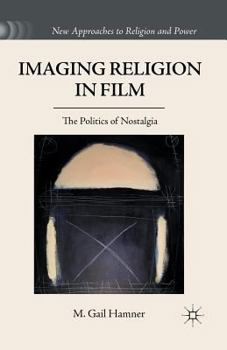Imaging Religion in Film: The Politics of Nostalgia
Select Format
Select Condition 
Book Overview
This book offers a new methodology for examining the ethico-political dimensions of religion and film which foregrounds film's social power both to shape subjectivity and to image contemporary social contradictions and analyses three specific films: Kurosawa's Dersu Uzala; Kiarostami's Taste of Cherry; and the Coens' The Man Who Wasn't There .
Format:Paperback
Language:English
ISBN:1349342408
ISBN13:9781349342402
Release Date:December 2011
Publisher:Palgrave MacMillan
Length:193 Pages
Weight:0.55 lbs.
Dimensions:0.5" x 5.5" x 8.5"
Customer Reviews
0 rating





